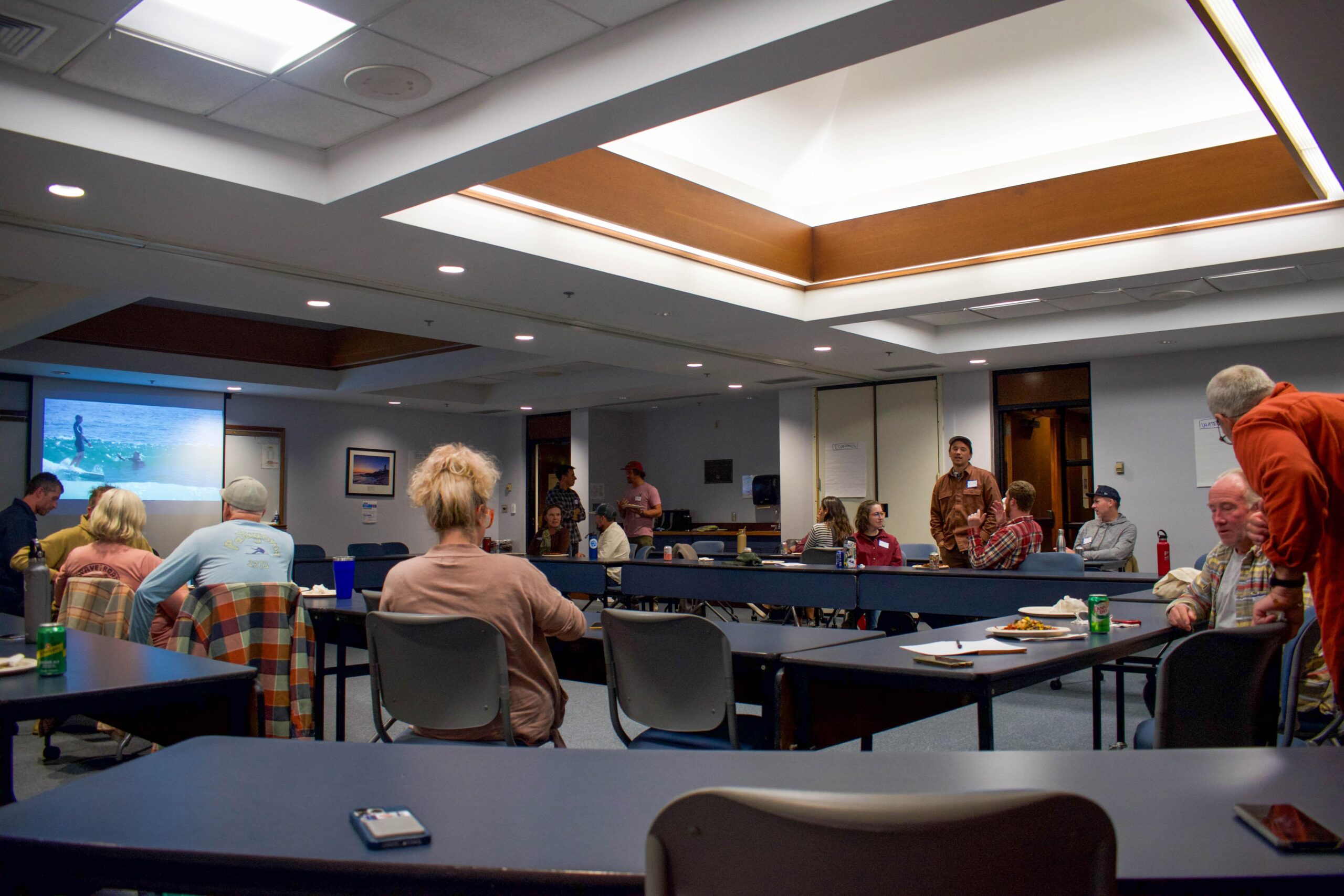Local surfers were invited to voice their concerns about public shoreline access and community inclusion at a forum with researchers at the University of Rhode Island’s Coastal Institute on Thursday, Oct. 10.
The forum was spearheaded by Peter Freeman, a research associate at the university’s Coastal Resource Center. Freeman, a coastal management specialist and natural resource economist, described the forum as, “a good way to introduce URI researchers to surfers and the surf community.”
“We need to understand the demand for research and what the issues are,” Freeman said to the group of almost 50 attendees.
Along with Freeman, the panel of experts included URI staff members Pam Rubinoff, also of the Coastal Resources Center, Nate Vinhateiro from the Coastal Institute and Nick Pizzo from the URI Graduate School of Oceanography.
Leaders of local surf organizations rounded out the panel, including Stan Brajer from the Rhode Island chapter of the Surfrider Foundation and Satya Sullivan, the co-founder of Colorful Lineup, an organization uplifting women of color in the surf community.
Freeman opened the floor to the group, providing the surfers with opportunities to bring up their questions and concerns. Public access to shorelines quickly rose to the top of the conversations.
“It’s kind of wild to see what has happened in our area due to access,” one surfer said. “Go anywhere else in the country and you don’t have to pay to walk on the beach.”
Other surfers echoed this sentiment, sharing stories of areas in Newport, Matunuck and others that have been lost to the surfing community due to private ownership.
“Surfing in Rhode Island is a finite resource,” said John Reiner, a local surfer and director of planning for Groton, Connecticut. “A tragedy of the commons is happening.”
Sullivan touched on public access as well, keeping the focus on traditionally underrepresented members.
“When we look at public access we look at parking, but we don’t look at community or mentorship,” Sullivan said. “We talk about getting secret surf spots but we have to ask, ‘who are we excluding?’”
Freeman, with his background in coastal management, prompted the group to think beyond public access and into the value of surfing in Rhode Island.
“That leads us to the question, do we want to manage our surf breaks as a natural resource?” Freeman said.
One topic floated by Freeman was the inclusion of a Rhode Island site in an potential upcoming research project on surf break protection and management. If funded, the project would be a comparative analysis of surf break protection and management models, according to Freeman.
The forum concluded with Freeman thanking the surfers for their participation and promising to continue to keep them in the loop for the possibility of another forum in the future.
.





